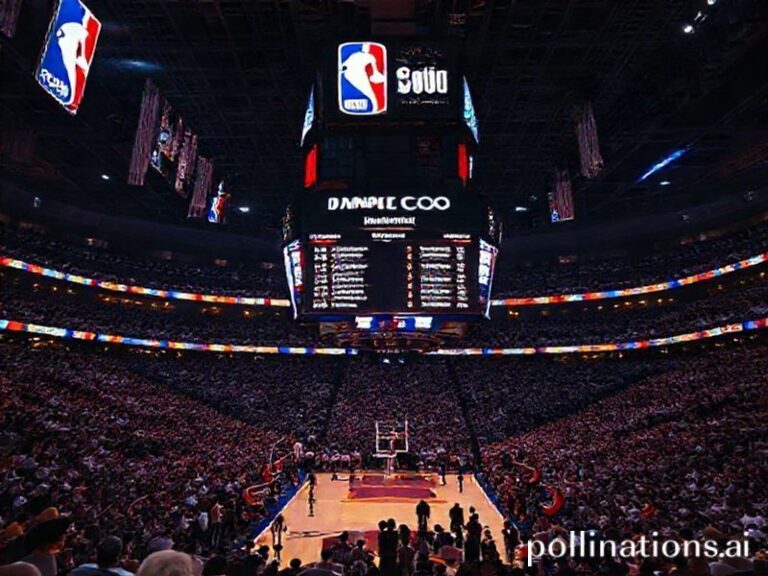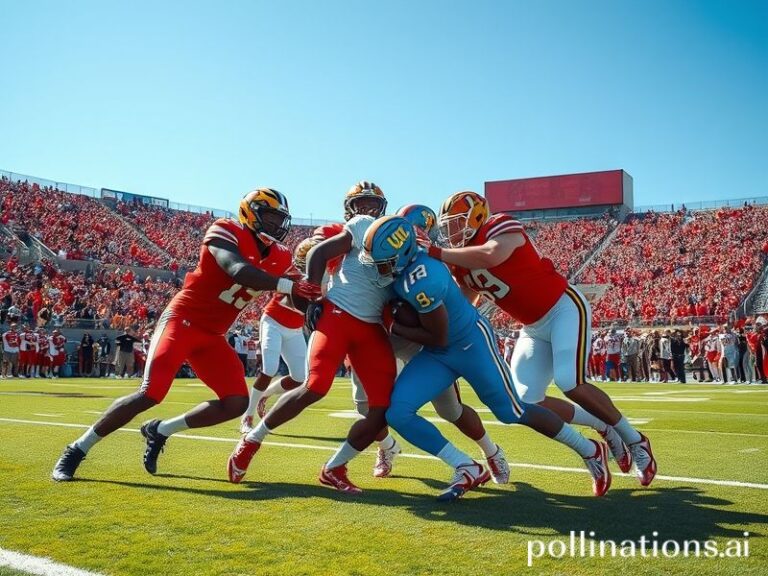One Spreadsheet in Iowa Just Shook the World’s Wheat Supply—and Breakfast May Never Recover
Tyler Smith, a 29-year-old supply-chain analyst from Des Moines, woke up last Tuesday convinced he was, in fact, the epicenter of the global economy. The rest of the planet, still rubbing sleep from its eyes, did not immediately concur. Yet within 48 hours Tyler’s spreadsheet—an unassuming .xlsx file titled “FinalFinal_V6(Really).xlsx”—had ricocheted from a Midwestern laptop to a Frankfurt data center, then to a Singaporean hedge-fund Slack, and finally onto the encrypted phone of a Russian deputy minister who has never knowingly eaten corn. Commodity traders in three time zones now refer to it as “the Smith file,” spoken in the hushed tones usually reserved for papal conclaves or new iOS releases.
How did a man whose previous claim to fame was winning a regional chili cook-off become the butterfly whose wing-flap threatens global wheat futures? The short answer is leverage. The long answer involves decades of just-in-time logistics, algorithmic risk models, and humanity’s touching faith that nothing will ever go wrong if we put everything on a boat and hope. Tyler, bless his statistically inclined heart, merely did the math. While the rest of us were doom-scrolling through cat videos, he noticed that a single drought in Argentina, a labor strike in South Korea, and a mysteriously absent container ship in the Red Sea all pointed to the same conclusion: the world’s Cheerios are about to be 14% more expensive by November.
International reactions were swift and predictably self-serving. The EU convened an emergency Zoom—backgrounds set to tasteful Brussels beige—where commissioners debated strategic cereal reserves as though discussing vintage Bordeaux. China’s state media blamed “speculative foreign forces” while quietly stockpiling oats under the polite fiction of “pig feed.” Meanwhile, the British government, ever the avant-garde satire of itself, appointed a Minister for Breakfast Resilience who immediately posed for photos with a bowl of porridge and a stern expression suggesting imminent naval action against granola.
In the global south, the implications are less comedic. Kenya’s flour millers have already hedged six months forward, pushing up the price of ugali—the national starch equivalent of both rice and religion. Egypt, the world’s largest wheat importer, dispatched envoys to Des Moines bearing gifts of papyrus and strategic flattery. Tyler, who still lives with two roommates and a rescue beagle named Keynes, has become an accidental geopolitical asset. The State Department offered him a security detail; he asked if they could also walk Keynes when he’s on deadline.
Of course, every prophet needs a profit, and Wall Street arrived like vultures who’ve read too much Ayn Rand. By Thursday, Tyler’s inbox brimmed with offers from quant funds promising seven-figure retainers to “monetize volatility.” One boutique firm proposed trademarking the phrase “Tyler’s Tip,” which sounds suspiciously like a low-rent dating column. He declined, explaining he prefers Excel macros to moral bankruptcy, a statement that instantly aged him 30 years in the eyes of anyone who’s ever met a banker.
There is, naturally, a darker punchline. The same model that flagged the wheat crunch also projects a 92% probability that next year’s coffee harvest will be devastated by a rogue cyclone season. If that proves true, Tyler won’t merely be the man who made toast pricey; he’ll be the oracle who murdered the morning latte. Civilization, it turns out, runs on carbohydrates and caffeine in roughly equal measure, and we’ve entrusted the keys to a guy whose idea of rebellion is putting pineapple in chili.
So what does Tyler Smith tell us about the world we’ve built? That it’s simultaneously hyperconnected and hilariously fragile, a Jenga tower of spreadsheets stacked on spreadsheets. That a lone analyst with a decent internet connection can spook ministers from Ottawa to Canberra. And that, despite our satellites and supply chains, we remain tribal primates who panic when breakfast is threatened. Tyler himself remains politely baffled by the attention. “I just wanted to forecast inventory,” he told reporters, clutching Keynes like a therapy animal. The planet, meanwhile, has already moved on to wondering what happens when he opens FinalFinal_V7. History suggests we’ll find out Tuesday, right after the Cheerios run out.







